NR509 Week 6: Case Kathleen Parks
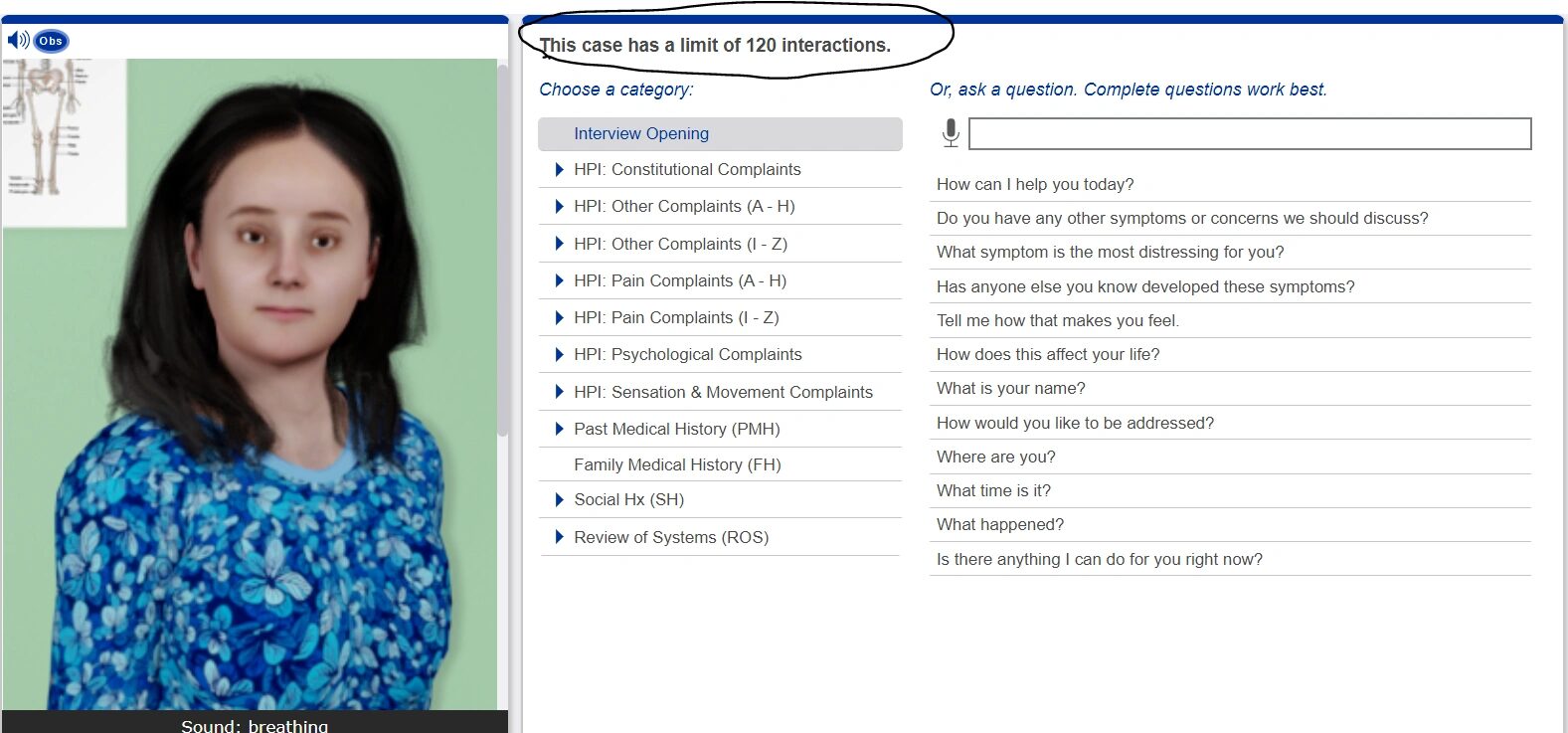
-
Lack of trauma
-
10-year history of stable-character headaches with recent increase in headache frequency
-
Neck pain
-
Left eye redness and tearing
-
Otalgia
-
Preceding bilateral visual scintillating scotomas
-
Pharyngitis
-
Temperature of 102 F
-
Abdominal pain
-
Nausea and vomiting with headache episodes
-
Hematemesis
-
Hematochezia
-
Hematuria
-
Photophobia/phonophobia with headache episodes
-
Right knee pain
-
Cough
-
Headache localized behind left eye
-
Orbital cellulitis
-
Diminished ability to function with headache episodes
-
Paronychia
-
Hypoxia
-
Headaches associated with junk food, red wine and life stressors
-
Cocaine use
-
History of brain tumor
-
History of DM I
-
Diplopia
-
Fever
-
Recent head trauma
(HPI Questions & Responses)
-
Any change in your headache since it began? → Only in terms of how often I get it.
-
Where more precisely is the pain in your head? → When I get a headache, it’s pretty much on the left behind my eye.
-
Does the pain in your head radiate someplace else? Where? → No, it doesn’t move anywhere else. It just stays there behind my left eye.
-
Do you have any awareness or warning symptoms that occur before the headache begins? → Often my vision in both eyes gets spotty before the headache actually comes on. I can still see – it’s kind of like a bunch of zig-zaggy flashing lights. My eyes are otherwise okay. It’s not like they’re swollen or watering or anything. But that’s pretty much it.
-
Does your headache pulsate? → They’re a throbbing-type sensation. Really unpleasant.
-
How severe (1–10 scale) is your headache? → Oh, it’s pretty unbearable. When my headaches start, it’s a 2 or 3, and it becomes an 8 or even a 10 when it really gets going. I just can’t do anything when I have one of my bad headaches. They can last up to 15 hours, which means the entire day is shot.
-
Does the headache awaken you from sleep? → No. Actually when I get them, sleep helps. But sometimes I do wake up with one in the morning.
-
Is this the worst headache of your life? → I don’t have one right now. When they do happen, the pain does get pretty bad. They just stink.
-
Does anything make your headache better or worse? → It helps if I lie down in a dark quiet room and try to sleep it off. And, definitely, light and noise make the pain worse.
-
What treatments have you had for your headache? → Well, I haven’t really been seen by a doctor for this. I use acetaminophen, but by the time I take it, I can’t keep it down because I am so nauseated. Same with ibuprofen. Acetaminophen and ibuprofen used to work, but now they really don’t help.
-
Do you have nausea and/or vomiting? → Only with my bad headaches.
(History Feedback)
-
How can I help you today? → I’ve been having these really bad headaches over the last few months. I don’t have one now, and haven’t had one in about a week, but I thought I’d have it checked out anyway.
-
Do you have any other symptoms or concerns we should discuss? → Just the symptoms that I always have had with these headaches, like nausea and vomiting. There’s nothing else I can think of off the top of my head.
-
When did your headache start? → They have gotten worse over the last few months.
-
What are the events surrounding the start of your headache? → In the past, they were much less frequent and they felt more like I had the hat from hell strapped to my head. These ones feel bad but a little different than that. They might correlate with stress. I have had a lot going on lately.
-
How long does your headache last? → It’s not always the same, but they can last the whole day, like 15 hours.
-
Does your headache come and go? → Yeah, I’m super glad they’re not constant.
-
Do you have new headaches that you have not experienced previously? → Maybe? I don’t know. There’s definitely some cross over. I have been having these headaches every 1–2 months for the past ten years, but the past few months they’re happening more frequently, like every 1–2 weeks, which is why I’m here. The pain is also worse.
-
Any change in your headache since it began? → Only in terms of how often I get it.
(Case Screen – Interview Interface)
-
Case has a limit of 120 interactions.
-
Categories: HPI (constitutional complaints, other complaints, pain complaints, psychological, sensation & movement), PMH, Family History, Social History, Review of Systems.
-
Suggested prompts include:
-
How can I help you today?
-
Do you have any other symptoms or concerns we should discuss?
-
What symptom is the most distressing for you?
-
Has anyone else you know developed these symptoms?
-
Tell me how that makes you feel.
-
How does this affect your life?
-
What is your name?
-
How would you like to be addressed?
-
Where are you?
-
What time is it?
-
What happened?
-
Is there anything I can do for you right now?
-
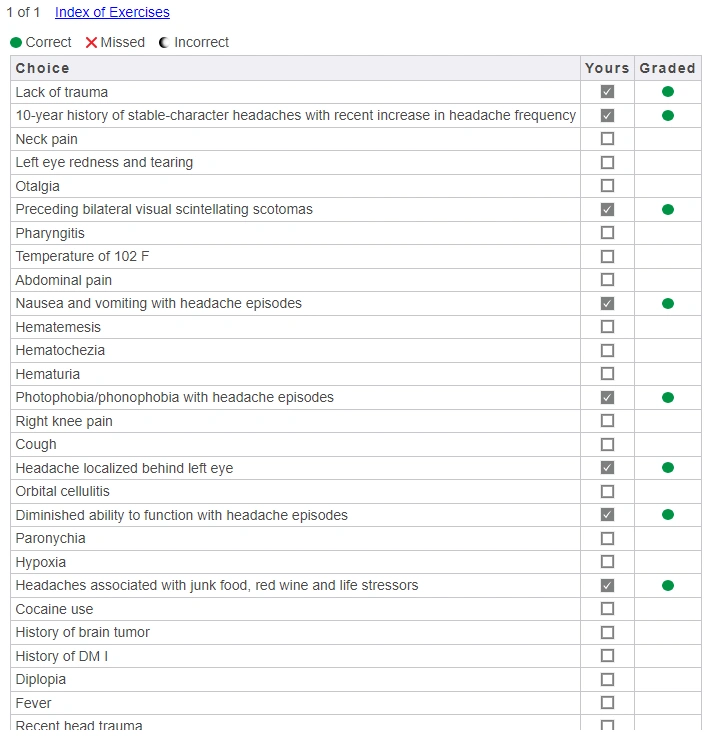
(Case Instructions – Kathleen Parks)
Patient: Kathleen Parks
-
26 y/o
-
Height: 5’6″ (168 cm)
-
Weight: 122 lb (55.5 kg)
-
Reason for encounter: More frequent severe headaches
-
Location: Outpatient clinic with x-ray, ECG, and laboratory capabilities
Case Play Instructions & Help
-
Limit: 120 questions (focus on present illness & associated systems).
-
All documentation must be completed in the EHR.
-
Document subjective info only in the history.
-
Suggested approach:
-
Start with open-ended questions.
-
Obtain HPI (use OLDCARTS method).
-
Obtain PMH, family history, social history, review of systems.
-
Physical Exam
-
Open patient record for vital signs.
-
Click on appropriate exams.
-
Document abnormal findings under Key Findings.
-
Avoid ambiguous terms.
-
Document “Not assessed” instead of “Negative” if not performed.
Assessment
-
Organize Key Findings with most important first.

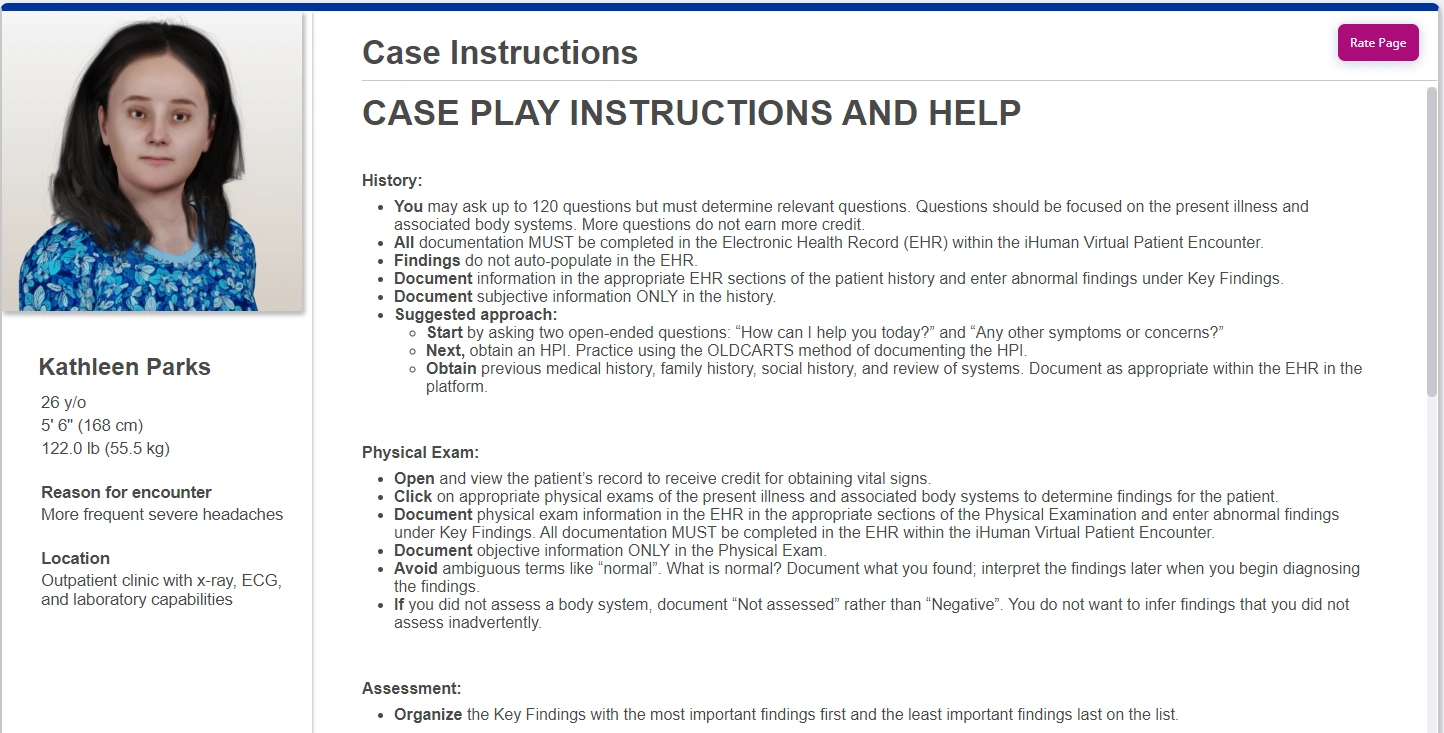
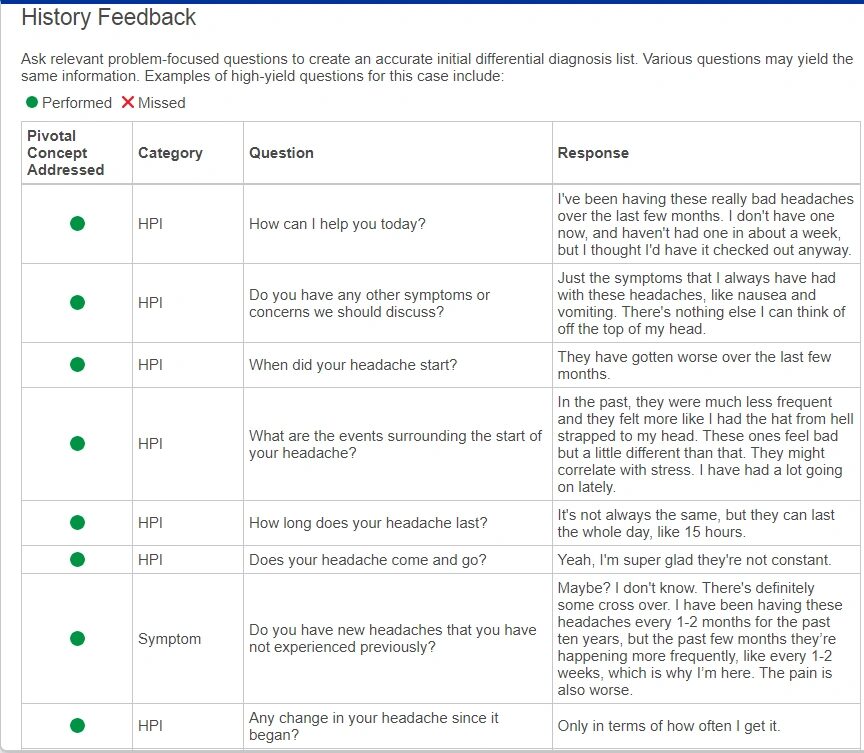
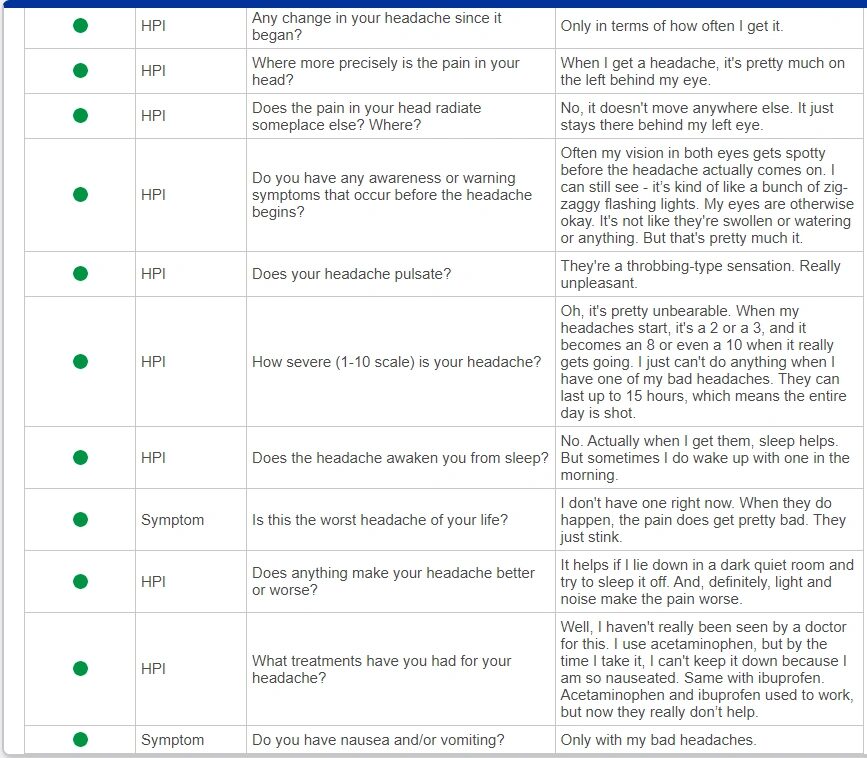

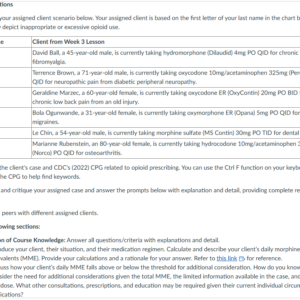
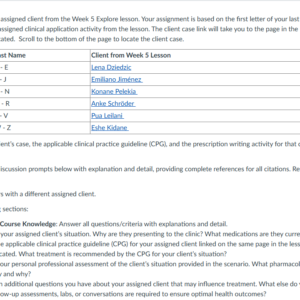
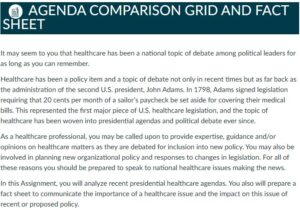
Reviews
There are no reviews yet.